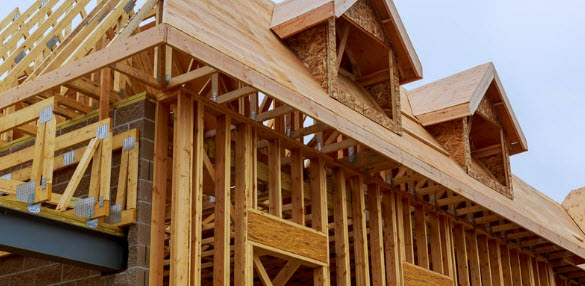Managing multiple debts can be overwhelming and stressful. If you’re struggling with high-interest credit cards, personal loans, or other forms of debt, debt consolidation offers a smart and practical way to regain control of your finances. By consolidating multiple debts into one manageable payment, you can reduce stress, lower interest rates, and streamline your monthly obligations. This post will explore Debt Consolidation Refinance and Debt Consolidation Mortgage options to help you find the best path toward financial relief.
What is Debt Consolidation?
Debt consolidation is the process of combining multiple debts into a single loan, usually with a lower interest rate or more favorable repayment terms. This allows you to make one monthly payment instead of juggling several accounts. Two common methods for debt consolidation are Debt Consolidation Refinance and Debt Consolidation Mortgage options.
Debt Consolidation Refinance: How It Works
A Debt Consolidation Refinance involves refinancing your home mortgage to borrow additional funds, which are then used to pay off your existing debts. This method is ideal for homeowners who have equity in their property and want to take advantage of lower mortgage interest rates.
Benefits of Debt Consolidation Refinance
- Lower Interest Rates
Mortgage rates are generally lower than rates on credit cards or personal loans. By consolidating your debt into your mortgage, you can reduce the interest you pay and save money over time. - Single Monthly Payment
Instead of keeping track of multiple debts, you’ll only need to make one payment each month, making it easier to manage your finances. - Potential Tax Benefits
Mortgage interest may be tax-deductible, depending on your situation. This can result in additional savings, especially if you’re using the funds for home improvements. - Improved Cash Flow
Lower interest rates and streamlined payments can improve your cash flow, giving you more breathing room in your budget.
Drawbacks of Debt Consolidation Refinance
- Risk of Foreclosure
Since a Debt Consolidation Refinance is secured by your home, missing payments could put you at risk of foreclosure. - Closing Costs
Refinancing typically comes with closing costs, which can add up. Make sure you weigh these costs against the potential savings. - Extending Your Mortgage
If you refinance for a longer term, you may end up paying more in interest over time, even with a lower rate.
Debt Consolidation Mortgage: Is It Right for You?
A Debt Consolidation Mortgage allows you to consolidate your debts by borrowing against your home’s equity. This loan is secured by your property and can be used to pay off high-interest debts. The amount you can borrow depends on the equity you’ve built in your home.
Benefits of a Debt Consolidation Mortgage
- Lower Interest Rates
Debt Consolidation Mortgage rates are usually lower than those of unsecured loans, making this option appealing for homeowners with significant equity. - Longer Repayment Terms
Mortgages often come with longer repayment periods, which can make monthly payments more affordable. This can reduce your monthly financial burden. - Eliminate High-Interest Debt
By paying off high-interest debts, like credit cards, you can save money on interest and pay down your debt faster.
Drawbacks of a Debt Consolidation Mortgage
- Tied to Your Home
Like refinancing, a debt consolidation mortgage is secured by your home. Failing to make payments could result in losing your property. - Home Equity Reduction
Using a Debt Consolidation Mortgage reduces the equity in your home, which could limit your options in the future if you want to borrow more or sell your home. - Closing Costs and Fees
Just like a regular mortgage, you’ll have to pay closing costs, which can reduce the immediate financial benefits of consolidating your debt.
How to Decide: Debt Consolidation Refinance vs. Debt Consolidation Mortgage
Debt Consolidation Refinance | Debt Consolidation Mortgage |
Best for homeowners looking to refinance | Best for homeowners with significant equity |
Combines mortgage and debt into one payment | Uses home equity to pay off debts |
Lower interest rates than credit cards | Longer repayment terms for lower monthly payments |
May require paying closing costs | Reduces home equity, could risk foreclosure |
Steps to Consolidate Debt
- Evaluate Your Debt
Make a list of all your current debts, including credit cards, personal loans, and any other accounts. Tally up the interest rates and monthly payments to understand your total debt burden. - Check Your Home’s Equity
If you’re considering a Debt Consolidation Refinance or Debt Consolidation Mortgage, check how much equity you’ve built in your home. The more equity you have, the more likely you are to secure favorable terms. - Shop for Lenders
Get quotes from multiple lenders and compare interest rates, fees, and loan terms. Be sure to factor in closing costs and whether consolidating debt into a mortgage makes financial sense for you. - Apply for the Loan
Once you’ve chosen the right lender, submit your application. Be prepared to provide documentation such as pay stubs, tax returns, and information about your current debts and mortgage. - Pay Off Your Debts
Once your loan is approved, use the funds to pay off your high-interest debts. Then focus on making your new monthly mortgage payment on time.
Explore debt consolidation using your Home Wealth Blueprint, crafted with real-time property data from Home Loan Advisor. Get personalized mortgage options and home wealth strategies that align with your financial profile.
FAQs
- What is debt consolidation?
Debt consolidation is the process of combining multiple debts into a single loan with a lower interest rate or better terms. - How does a Debt Consolidation Refinance work?
A Debt Consolidation Refinance replaces your existing mortgage with a new one, borrowing additional funds to pay off your debts. - What is a Debt Consolidation Mortgage?
A Debt Consolidation Mortgage allows you to borrow against your home’s equity to pay off other debts, typically with lower interest rates. - Is debt consolidation a good idea?
Debt consolidation can be a smart move if you can secure a lower interest rate and improve your cash flow, but it’s important to consider the risks. - What are the risks of consolidating debt into a mortgage?
The primary risk is that you’re securing the loan with your home. If you fail to make payments, you could face foreclosure. - How much can I borrow with a debt consolidation refinance?
The amount you can borrow depends on the equity in your home and the lender’s terms. Typically, you can borrow up to 80% to 85% of your home’s appraised value. - What are the closing costs for a debt consolidation mortgage?
Closing costs generally range from 2% to 5% of the loan amount, which includes fees for appraisals, credit checks, and title insurance. - Can I consolidate credit card debt with a mortgage?
Yes, you can consolidate high-interest credit card debt into your mortgage through a Debt Consolidation Refinance or Debt Consolidation Mortgage. - How long does it take to consolidate debt with a mortgage?
The process can take anywhere from 30 to 45 days, depending on the lender and your financial profile. - What should I consider before consolidating debt?
Before consolidating debt, make sure you have enough equity in your home, understand the costs involved, and have a plan to avoid accumulating more debt.
Conclusion
Debt consolidation through a Debt Consolidation Refinance or Debt Consolidation Mortgage can be a smart way to simplify your finances, lower interest rates, and regain control of your budget. However, it’s important to weigh the benefits against the potential risks, especially when securing your loan with your home. Carefully evaluate your situation, shop around for the best terms, and take the necessary steps toward financial relief.



